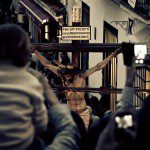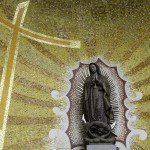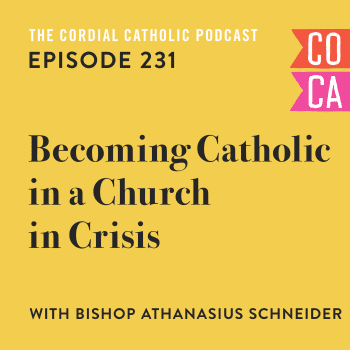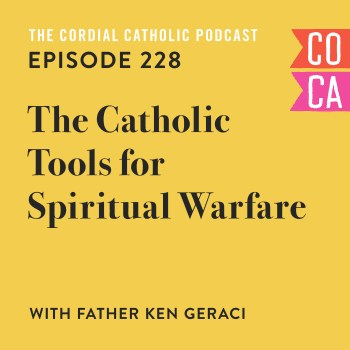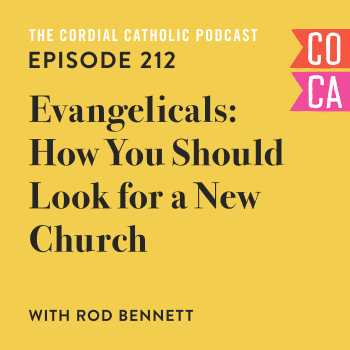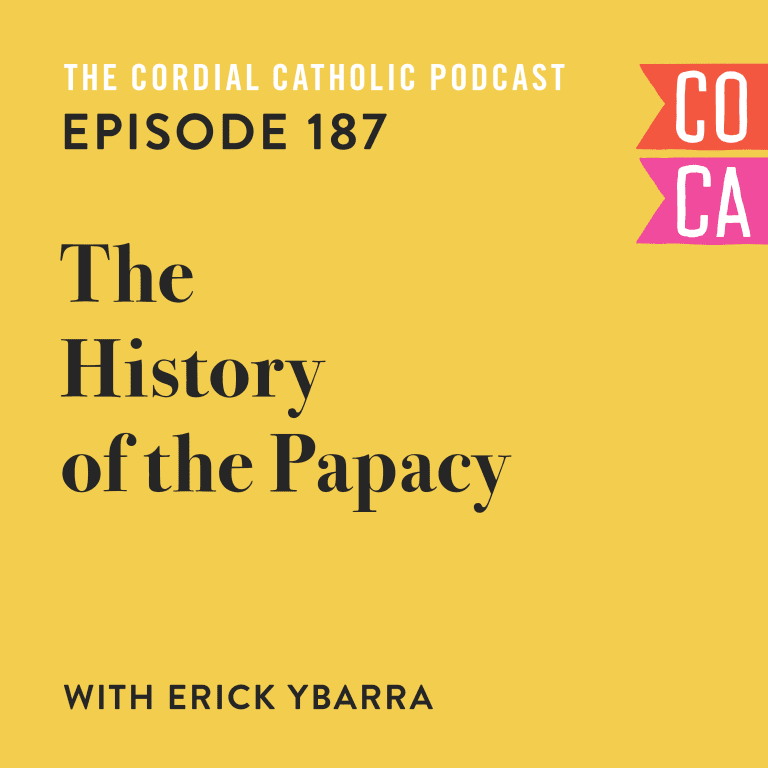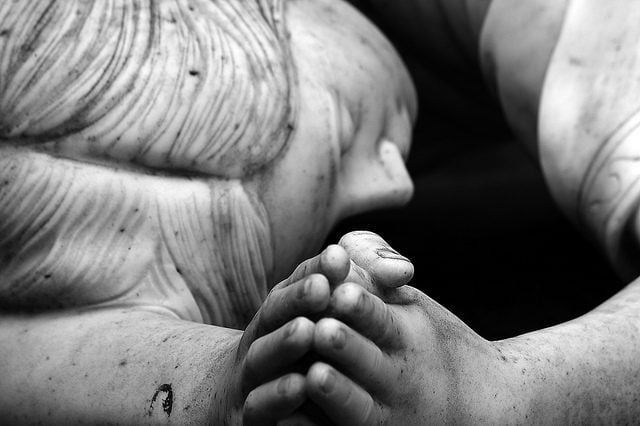
The Catholic Church is a powerhouse of prayer.
I wouldn’t have known it before becoming a Catholic. Or, at least, before reading more about Catholicism from Catholic authors themselves.
But it’s true.
Prayer is the fundamental lifeblood of the Catholic Church. Prayer is at its very core because at the core of the Church’s most central form of worship—the celebration of the Mass—is fundamentally prayer.
And, as highlighted, sadly, with the recent disaster in Nepal, the powerful prayers of devout Catholics across the face of the earth rise up, poignantly, like the incense around the altar in Revelation in a way I can barely describe.
What I Thought I Knew About Catholic Prayer
Before I became a Catholic, and even in my early stages of exploring the Catholic faith, I knew three things, solidly, about the prayer lives of Catholics.
They prayed to Mary. More widely applicable, they prayed to dead people. And, even more widely applicable, they most often just didn’t pray at all.
I was largely wrong.
Fundamentally, there are bad Catholics out there. There are cultural Catholics who were raised “Catholic” in the same way my beautiful wife was raised “Dutch.” It’s an ethnic identification rather than a religion, and that sucks for the rest of us devout, practising, evangelical Catholics. It’s an unfortunate inertia to work against and, all this to say that, sure, lots of Catholics don’t know the first thing about prayer.
But many more do.
The Catholic Church, in all reality, is the epicentre of Christian prayer. It rises like the breath of our universal Christian Church—like incense—up to God. It’s in everything we do, and it’s incredibly powerful.
Praying to Mary and the Saints in Heaven
As an evangelical Protestant I thought that Catholics worshipped Mary, the Mother of God, and the deceased Catholic saints. Simply put, we don’t.
Instead, Catholic theology understands that holy individuals like the Mother of God, chief amongst holy humans, and the great saints throughout history are just as alive as you and I are here on earth. Only more so, in Heaven. In fact, these holy people are with God and, as picture in the Letter to the Hebrews and John’s Revelation, they can hear our prayers.
And pray for us, in the presence of God.
Chalk one up for the powerhouse of prayer.
Catholics believe, remarkably, that we can join our prayers with all Catholics—all Christians—throughout all time and, in a special way, with those who lived a holy life and are, right now, in the presence of God.
We don’t “pray to” Mary and the Saints in the sense that they can answer our prayers. We “pray to” Mary and the saints in the sense of asking them to pray for us, to God, through Jesus Christ.
How powerful is that?
Praying for Each Other on Earth
Still, joining with that community of Christians not on this earth we can also join with one another, and let me give you an incredible example.
Last month, after the horrific earthquake shook Nepal, bishops from across the world, taking their cue from the Pope, asked all clergy to pray for Nepal and to take special monetary offerings for relief.
What does that practically mean?
It means that in my parish, on Sunday morning, we lifted up prayers for the people of Nepal. And because of the hierarchical nature of the Catholic Church the same thing happened in every single other parish across the entire country, likely the entire continent, if not the entire world.
That’s an unbelievably powerful mustering of prayer. A great river of prayer in which we all flow, unleashed for a singular purpose.
A Word on Rote Prayers
I heard an interview recently with a Catholic convert like myself who described his initial aversion to rote, written down prayers. As evangelical Protestants—especially as Pentecostals—we were taught that spontaneous prayer was the best form of prayer to God. We were taught, remarkably, that the prayer Jesus told us to repeat could only be repeated vainly, and shouldn’t be done.
But there’s something profoundly beautiful in the written prayer and this is what he talked about, too.
To pray a deeply moving prayer written by a Desert Father, a monk living in solitude 1,500 years ago, builds a profound bridge between myself and him. Between me and God. And, like the Psalms which, themselves, were written prayers, the great treasury of prayer held in trust by the Catholic Church is rich and diverse.
I think resplendent is the most apt word, and why would we shun a treasury like that because, as the Catholic Church rightly understands, we do not pray, or live, in our own little bubble.
Each Catholic Church is a House of Prayer
I remember, clearly, the feeling I got at my first Mass when it came time for prayer intentions. Drawing on a decade of Pentecostal angst I figured an altar call was coming; or we were being asked to raise our hands and make our awkward needs known.
What I didn’t know is that in every Mass there’s provision—at the discretion of the priest—for a time of prayer. For a time to raise the needs of the parishioners before the altar of God, in the form of prayer.
It’s incredible.
The Mass itself, according to the Church, is a prayer. We pray for forgiveness, we pray for peace, we pray for grace and to be found worthy, and we pray for each other. We pray that Christ comes down, each and every time, to help sustain us. We live not on bread alone.
In the end the feeling is something rather indescribable, but I try anyway. It’s the feeling of joining my prayers to such a vast, unfathomable network, and realizing just who I’m praying along with. To realize that I join my simple prayers to all the Christian faithful throughout all time is mind-boggling. Equally, to know that when the Pope asks us to pray we do, in concert, across the whole face of the earth feels genuinely Christian—like it was meant to be.
Remarkably, I merely dip my smallest toes into the river, this stream of prayer heading somewhere else, and somehow, beautiful, my inner most longings, the groanings of my soul, float on, and away, and are heard.

